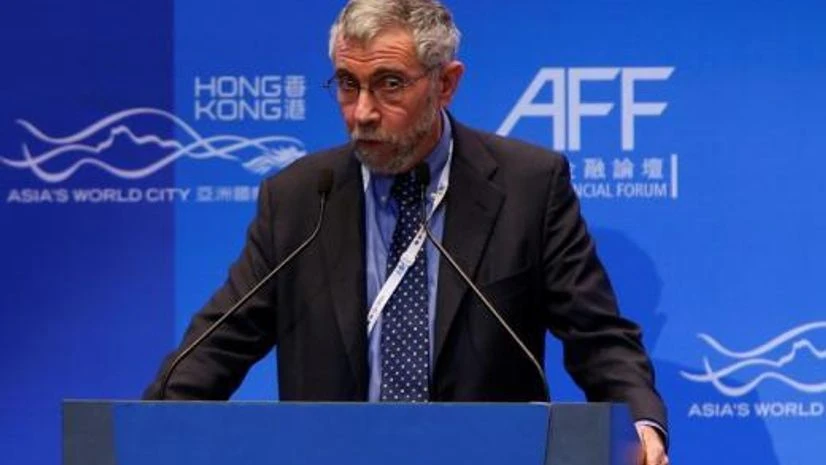Nobel Laureate Paul Krugman on Saturday said India has made rapid progress on the economic front but economic inequality in the country remains an issue.
India has become a much "better place to do business" than it was earlier, though the bureaucratic obstacles have not gone away completely but reduced enormously.
"India achieved as much economic progress in t ast) 30 years as the Great Britain did in 150 years. It is a very rapid space of transformation....why does there still seem to be visible poverty in India?
"One problem is high degree of economic inequality," Krugman said at the News 18 Rising India Summit, adding that India has made "enormous strides" in economic progress but the wealth has "not been evenly distributed".
On rising income of middle-class in emerging markets globally, he said: "People, when (they) mostly talk about the story, understandably focus on China, but India is part of the story as well. ...India is still poor, but not in the same level at all. Indian GDP per capita is about 12 per cent of the US level now, which sounds low but that is up from 4 per cent not that long ago.
Terming India's economic growth progress as "extraordinary", he said the country has become (on purchasing power) the world's largest economy overtaking Japan and while being behind the US and China, it is far bigger than any European country.
Attributing factors that played a role in the economic "progress", Krugman said there was a dramatic change in India's policy including liberalised policies taken in early 1990s.
More From This Section
"I am on the Centre-Left, but I do not think the government should have a heavy hand on economy. India used to have License Raj, where bureaucratic obstacles were immense and that has not gone away completely but enormously reduced. India has become a much easier place to do business that it was. The PM said India moved from 148 to 100 in the rankings. That is not a badge of distinction, but it is better than it was," he observed.
According to Krugman, the transformation of policy came at a good time and the country opened up at the right time.
The infrastructure is still a problem but it is better than before, he said.
"India brought policies that opened up possibilities of doing business and made India attractive place for international companies to do business. There has been a real transformation of policies," he said.
The American economist, who won a Nobel Prize in 2008, was also optimistic about India for having first mover's advantage in terms of globalisation of services.
According to him, India's growth story has been quite unique as the services-led growth have not been seen anywhere else in the world and the country can ride the next wave of globalisation on its demographic dividend.
He, however, warned creation of employment and jobs is utmost important to sustain projected growth in demography and lack of manufacturing sector could work against it.
He also touched upon the problem of corruption that the country has been facing.
"There are issues of corruption. You cannot become Denmark with Chinese levels of corruption," he added.

)
